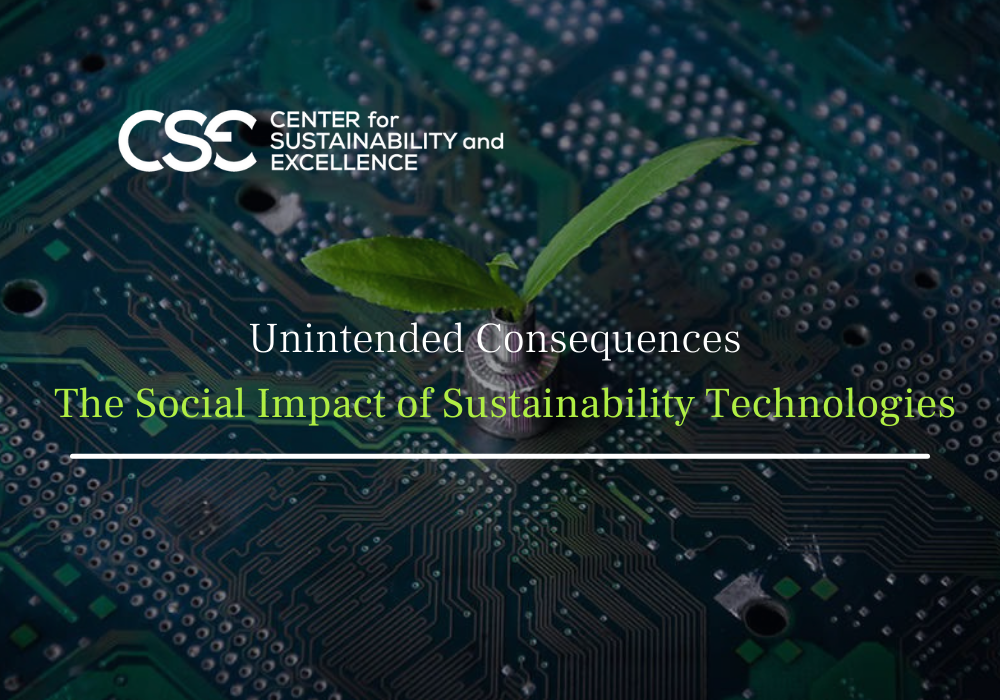Remember when we debated paper or plastic bags? Drill an oil well or take down a forest?
Today we debate whether EVs (electric vehicles) actually are more sustainable than combustion engines. Maybe not, if we consider a life cycle analysis (LCA); maybe yes if we consider lives lost to air pollution. Is automation and subsequent efficiencies better than employing people? Do AI solutions reach faster solutions or stifle creativity?
These questions have real world ramifications for businesses increasingly turning to Sustainability Technologies, whether to improve their impact on environment, society, workplace or marketplace.
If you are a small company storing your data in the cloud, you may want to budget for solar powered servers. If you are a large company, consider the return on investment of paying 20% more for a piece of machinery that will improve efficiency 5%.
Now, let us consider the social ramifications. In the example of the EVs, the LCA shows that the components are less recyclable than those of a standard auto – lightweight composites, batteries with toxic chemicals. But, there are social benefits to counter this:
- Cleaner air in the long run – reducing respiratory ailments.
- Less energy in the long run – the bulk of a vehicle’s impact is not in production, but in use.
- Be a role model – technology is imperfect, but the more of us using it, the better it will become.
- Build your brand and reputation among sustainability allies.
- Raise your ESG (environment, social, governance) rating among investors who have done their own research and deem the issue a priority.
- Demonstrate commitment – grandiose gestures impact stakeholders and often raise the bar for competitors.
Key, as with all sustainability considerations, is the consideration. Answer these questions:
- Which stakeholders will be impacted? Employees, local community, investors?
- What is the time horizon? Sustainability is a long-term and often incremental endeavor.
- What does the LCA reveal? Responsibility neither starts nor ends with the purchase of the tech.
- Where does the tech fit in the circular economy?
- Is the technology, and subsequent touting of, greenwashing?
- What might be the unintended consequences? Displaced workers, data breaches?
The goal is for the good to outweigh the bad. As we strive to reach UN Sustainable Development Goals such as zero hunger, clean water, affordable clean energy, responsible consumption and production, sustainability technologies are necessary and inevitable. Take the time to consider ramifications beyond the immediate, for the social as well as environmental good.
CSE can guide you securely into your Sustainability transformation while paying attention to the social and environmental good. We have been doing so for more than 14 years, with sector-based integrated consulting services, coaching and practical tools on Sustainability (ESG) from ESG Reporting and Ratings, Certification & External Assurance, to Climate Risk, Impact Assessment and Strategic Planning.
If you want to get certified, check out CSE’s Certified Sustainability (ESG) Practitioner Programs worldwide.
For more information, please contact us at [email protected]







